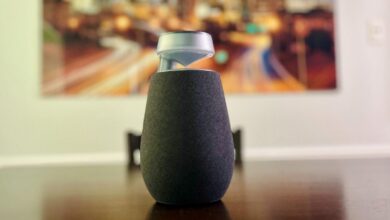The best AI chatbots of 2024: ChatGPT, Copilot, and notable alternatives

Since the launch of ChatGPT, AI chatbots have soared in popularity because of their ability to do a wide range of tasks that can help you with your personal and work life. AI chatbots can write code, compose emails, draft reports, generate art, write Excel formulas, and much more — at your command.
Also: ChatGPT finally gets easier to organize on the 7th day of OpenAI
ChatGPT achieved worldwide recognition, motivating competitors to create their own versions. As a result, there are many options on the market with different strengths, use cases, difficulty levels, and other nuances.
For the past two years, I have taken a deep dive into artificial intelligence and tested as many AI tools as possible — including dozens of AI chatbots. Using my findings and those of other AI experts at ZDNET, I have created a comprehensive list of the best AI chatbots on the market.
This list details everything you need to know before choosing your next AI assistant, including what it’s best for, its pros and cons, cost, its large language model (LLM), and more. Whether you’re new to AI chatbots or a regular user, this list should help you discover a fresh option you haven’t tried before.
What is the best AI chatbot right now?
In May 2024, OpenAI supercharged the free version of ChatGPT, solving its biggest pain points and lapping other AI chatbots on the market. For that reason, ChatGPT moved to the top of the list, making it the best AI chatbot available now. However, sometimes, like in the past week, ChatGPT servers can go down, and you may need a backup.
Also: I test AI tools for a living, and these are the only two worth paying for
Although such outages are infrequent, having another chatbot in your back pocket is always a good idea. Keep reading to discover why and how ChatGPT compares to Copilot, You.com, Perplexity, and more.
The best AI chatbots of 2024
Show less
ChatGPT is a hugely successful conversational AI chatbot released in November 2022 by OpenAI. It has advanced capabilities, such as performing writing tasks well, including composing emails, essays, resumes, and lists. It is also highly proficient in STEM tasks like writing and debugging code and solving complex math equations.
Copilot outperformed earlier versions of ChatGPT because it addressed some of ChatGPT’s biggest pain points at the time, including a lack of Internet access and a knowledge cutoff.
Also: How to use ChatGPT to digitize your handwritten notes for free
However, in May 2024, OpenAI supercharged its AI chatbot, solving all those problems and giving it some of the most competitive features on the market — primarily its latest LLM GPT-4o, which provides the chatbot with web browsing, vision, data analysis, file uploads, and GPTs.
Many of those features were previously limited to ChatGPT Plus, the chatbot’s subscription tier, making the recent update a huge win for users of the free version.
Getting started with ChatGPT is easier than ever since OpenAI stopped requiring users to log in. Now, you can start chatting with ChatGPT simply by visiting its website. However, if you want to access the advanced features, you must sign in, and creating a free account is easy.
ChatGPT features: Uses OpenAI’s GPT-4o or GPT-4o mini when at capacity | Can generate text, solve math problems, and code | Impressive conversation capabilities | Free to the public
Read More
Show Expert Take Show less
Show less
In February 2023, Microsoft unveiled a new AI-improved Bing, now known as Copilot. This tool runs on GPT-4 Turbo, which means that Copilot has the same intelligence as ChatGPT, which runs on GPT-4o.
In October, Copilot rebranded, making its UI much more modern, welcoming, and user-friendly. The rebrand also came with a ton of new features, including being able to chat using Copilot Voice, Copilot’s version of ChatGPT’s Advanced Voice Mode, but for free.
Also: If these chatbots could talk: The most popular ways people are using AI tools
Besides those capabilities, Copilot already had most of the features the free version of ChatGPT gained in May, including access to current events, attribution (or linking to the sources it retrieved from), browsing the internet, uploading images and documents, generating images, and more.
Copilot is the best ChatGPT alternative as it has almost all the same benefits. Copilot is free to use, and getting started is as easy as visiting the Copilot website. The tool also has an app and is accessible via Bing.
Copilot features: OpenAI GPT-4 | Has access to the internet | Works like a search engine with information on current events | Free
Read More
Show Expert Take Show less
Show less
Anthropic launched its first AI assistant, Claude, in February 2023. Like its leading competitors, Anthropic can answer prompts conversationally for anything you need assistance with, including coding, math, writing, research, and more.
Also: This free tool from Anthropic helps you create better AI prompts
Although I have given this chatbot various superlatives in the past, including the best AI chatbot for image interpretation and the best for chatting, I would say that — at the moment — the biggest advantage of this chatbot is that it prioritizes privacy.
Anthropic has made it as transparent as possible that it will never use a user’s prompts to train its models unless the user’s conversation has been flagged for Trust & Safety review, explicitly reported the materials, or explicitly opted into training. Furthermore, Anthropic has never automatically used user data to train its models.
Also: Claude 3.5 Haiku now available to all users – how to try it
Beyond its transparency, it is also a highly capable chatbot. If you want to use the chatbot regularly, upgrading to Claude Pro may be a better option, as it offers at least five times the usage limits compared to the free version for $20 a month.
Claude features: Powered by Claude 3 model family | Accepts document uploads | Trained with information up to 2023 | Free
Read More
Show Expert Take Show less
Show less
Perplexity AI is a free AI chatbot connected to the internet that provides sources and has an enjoyable UI. As soon as you visit the site, using the chatbot is straightforward — type your prompt into the “ask anything” box to get started.
A title above the textbox reads, “Where knowledge begins” — and it could not be more fitting.
Also: 5 reasons why I prefer Perplexity over every other AI chatbot
When you click on the textbox, the tool offers a series of suggested prompts, mostly rooted in news. The chatbot also displays suggested prompts on evergreen topics underneath the box. All you have to do is click on the suggestions to learn more about the topic and chat about it. Additionally, Perplexity provides related topic questions you can click on to keep the conversation going.
These extensive prompts make Perplexity a great chatbot for exploring topics you wouldn’t have thought about before, encouraging discovery and experimentation. I explored random topics, including the history of birthday cakes, and I enjoyed every second.
Also: Perplexity Pro’s AI absolutely aced my coding tests – but there’s a catch
Other perks include an app for iOS and Android, enabling you to tinker with the chatbot while on the go. Footnotes are provided for every answer with sources you can visit, and the chatbot’s answers nearly always include photos and graphics. Perplexity placed first on ZDNET’s best AI search engines of 2024.
Perplexity AI features: OpenAI GPT-4 Turbo and Claude 3 Sonnet and Opus for subscribers | Has access to the internet and current events | Provides prompt suggestions to get chats started | Free
Read More
Show Expert Take Show less
Show less
Jasper is specifically for users looking to incorporate an AI chatbot into their workflow — there is no free plan, and you can’t even access the chatbot without paying up. For example, when I tried using the AI, I was met with dead ends unless I subscribed. The least expensive option, the Creator plan, is geared towards freelancers and solo-preneurs and costs $49 a month. However, the investment may be worth it if you rely on an AI chatbot to generate copy for your business.
Also: The best AI search engines of 2024: Google, Perplexity, and more
With Jasper, you can input a prompt for the text you want written, and it will write it for you, just like ChatGPT would. The major difference is that Jasper offers extensive tools to produce marketing copy. The tool can check for grammar and plagiarism and write in over 50 templates, including blog posts, Twitter threads, video scripts, and more. Jasper also offers SEO insights and can even remember your brand voice.
Whether you are an individual, part of a smaller team, or in a larger business looking to optimize your workflow, you can access a trial or demo before you take the plunge.
Jasper features: Uses different LLMs | Summarizes texts and generates paragraphs and product descriptions | Checks for plagiarism and grammar | Starts at $49 per month
Read More
Show Expert Take Show less
Show less
You.com (previously known as YouChat) is an AI assistant that functions similarly to a search engine. Like Google, You.com lets you enter any question or topic you’d like to learn more about, and you’re immediately met with real-time web results, in addition to a conversational response.
For example, when I asked, “Can you share some pictures of adorable dog breeds?”, the chatbot provided six web links, seven pictures it pulled from the web, a conversational answer, and related news.
The chatbot can also provide technical assistance with answers to anything you input, including math, coding, translating, and writing prompts. Because You.com isn’t as popular as other chatbots, a huge plus is that you can hop on any time and ask away without delays.
Also: My 3 favorite AI chatbot apps for iOS – and what you can do with them
One of You.com’s standout features is that you can toggle between the most popular AI models on the market using the Custom Model Selector.
The AI models included in the Custom Model Selector include OpenAI’s GPT-4 and GPT-4 Turbo; Anthropic’s Claude Instant, Claude 2, Claude 3 Opus, Clause 3 Sonnet, and Claude 3 Haiku; Google’s Gemini Pro; and Zephyr (uncensored).
That capability means that, within one chatbot, you can experience some of the most advanced models on the market, which is pretty convenient if you ask me.
You.com features: Most leading LLMs | Lists sources for the text it generates | Longer answers | Free
Read More
Show Expert Take Show less
Show less
The Writesonic platform offers tools that help generate stories, including Instant Article Writer, which creates an article from a single click; Article Rewriter, which rephrases existing content; and Article Writer 5, which generates articles using ranking competitors.
Part of Writesonic’s offering is Chatsonic, an AI chatbot specifically designed for professional writing. It functions much like ChatGPT, allowing users to input prompts to get any assistance they need for writing.
Other tools that facilitate the creation of articles include SEO Checker and Optimizer, AI Editor, Content Rephraser, Paragraph Writer, and more. A free version of the tool gets you access to some of the features, but it is limited to 25 generations per day limit. The monthly cost starts at $12 but can reach $2,000 for the AI + Human Content Service.
Chatsonic features: Model-agnostic LLM framework | Aware of current events | Extensive feature suite, including voice dictation and image generation | Starts at $16 per month
Read More
Show Expert Take Show less
Show less
Gemini is Google’s conversational AI chatbot that functions most similarly to Copilot, sourcing its answers from the web, providing footnotes, and even generating images within its chatbot. For image generation, Gemini uses Imagen 3, which was crowned ZDNET’s best AI image generator of 2024.
At the company’s Made by Google 2024 event, Google made Gemini its default voice assistant, replacing Google Assistant with a smarter alternative. Gemini Live is an advanced voice assistant that can have human-like, multi-turn verbal conversations on complex topics and even give you advice.
The Live experience is supposed to mimic a conversation with a human. As a result, the AI can be interrupted, carry on multi-turn conversations, and even resume a prior chat. The best part is that it is now available for iOS and Android users for free.
Also: You can try Google’s new ‘AI Premium Plan’ for free. Here’s how (and why you’ll want to)
Google also offers a premium plan that costs $20 per month cost — which is on par with other premium AI plans like ChatGPT Plus and Claude Pro. The Google One AI Premium Plan includes other perks besides Gemini Advanced, such as Gemini in Gmail and Docs, 2TB of storage, and unlimited Magic Editor in Google Photos. Still, if you want to try the tool before committing to buying it, read my piece, ‘How to try Google’s new Gemini Live AI assistant for free‘.
Gemini features: Powered by Gemini 1.5 Flash | Includes a “Google it” feature | Generates clear text and images quickly | Free
Read More
Show Expert Take Show less
Show less
If you want your child to use AI to lighten their workload — within limits — Socratic is for you. With Socratic, children can type in any question about something they’re learning in school. The tool will then generate a conversational, human-like response with fun, unique graphics to help break down the concept.
“It’s a powerful studying tool that could help students double-check their homework, or get across the last hurdle if a question or formula just isn’t making sense. And using the app is as easy as using Snapchat or talking to Siri,” said former ZDNET contributor Jason Cipriani in his review.
Also: How Google Socratic can help you with your homework
The app, available on the Apple App Store and the Google Play Store, also has a feature that lets your kid scan their worksheet to get a specially curated answer. The app does have some limitations. For example, it will not simply write an essay or story when prompted. However, this feature could be positive because it curbs your child’s temptation to get a chatbot to write their essay.
Socratic features: From Google | Type in any question to generate a response | Includes fun graphics | Supports scanning worksheets to get a specially curated answer | Free
Read More
Show Expert Take Show less
Show less
While there are plenty of great options on the market, if you need a chatbot that serves your specific use case, you can always build a new one that’s entirely customizable. HuggingChat is an open-source chatbot developed by Hugging Face that can be used as a regular chatbot or customized for your needs.
As ZDNET’s David Gewirtz unpacked in his hands-on article, you may not want to depend on HuggingChat as your go-to primary chatbot. However, it is a good interface for building your own chatbot.
Also: What to know about Mistral AI: The company behind the latest GPT-4 rival
As Gewirtz said: “If you want something that you control, you can use HuggingChat to build a chatbot where you have visibility into every aspect of its functioning. You can choose to make that chatbot available online to other users and provide transparency to all users.”
Socratic features: Clean, ChatGPT-inspired interface | Entirely customizable | Great for developers or AI fanatics | Secure alternative | Free
Read More
Show Expert Take Show less
The best overall AI chatbot is ChatGPT due to its exceptional performance, made possible by its upgrade to OpenAI’s cutting-edge GPT-4o language model, which makes it proficient in various language tasks like writing, summarization, coding, multimodality, translation, and conversation. The model also gives the AI access to current events.
Another advantage of the upgraded ChatGPT is its availability to the public at no cost. Despite its immense popularity and major upgrade, ChatGPT remains free, making it an incredible resource for students, writers, and professionals who need a reliable AI chatbot.
| Best AI chatbots | Price | Language model | Current events capability | Key features |
| ChatGPT | Free | OpenAI’s GPT-4o (GPT-4o mini when at capacity) | Up-to-date on current events; has access to the internet | Can generate text, solve math problems, and do coding. Offers conversational capabilities. |
| Copilot | Free | OpenAI’s GPT-4 | Up-to-date on current events; has access to the internet | Works like a search engine with information on current events. |
| Claude | Free | Claude 3 family of models | Limited current events capability | Users can upload documents such as PDFs to receive summaries and get questions answered. |
| Perplexity.ai | Free | OpenAI’s GPT-3 and GPT-4 (for subscribers) | Up-to-date on current events; has access to the internet | Can provide prompt suggestions based on current events. |
| Jasper | Starts at $39/month | Uses different LLMs, including GPT-4 | Focuses on written text; has copy-editing features and plagiarism checker | Can summarize texts and generate paragraphs and product descriptions. Has over 50 different writing templates, including blog posts, Twitter threads, and video scripts. |
| You.com | Free | Most leading LLMs | Up-to-date on current events; has access to the internet | Outputs an answer to anything you input, including math, coding, translating, and writing prompts. Lists sources for the text it generates. |
| Chatsonic | Starts at $12/month | Model-agnostic LLM framework | Up-to-date on current events; has access to the internet | Offers voice dictation, AI image generation, and more. |
| Gemini (formerly Google Bard) | Free | Gemini 1.5 Flash | Up-to-date on current events; has access to the internet via Google | Can provide relevant and useful writing assistance. |
| Socratic | Free | From Google | Kid-friendly; can help with homework | Children can type in any question and Socratic will generate a conversational, human-like response with fun unique graphics. |
| HuggingChat | Free | HuggingFace | Can have access to the internet if you’d like to | You can build your own chatbot using HuggingChat that suits your needs. |
While I think ChatGPT is the best AI chatbot, your use case may be hyper-specific or have certain demands. If you want an AI chatbot that produces clean, reliable, business-ready copy, for example, then Jasper is for you. If you want a chatbot that acts more like a search engine, Perplexity may be for you. Lastly, if there is a child in your life, Socratic might be worth checking out.
See our breakdown below:
| Use this AI chatbot | If you want… |
| ChatGPT | The best AI chatbot overall and a wide range of capabilities beyond writing, including coding, conversation, and math equations. |
| Copilot | An AI chatbot with up-to-date information on current events, links back to sources, and is free and easy to use. |
| Claude | The best AI chatbot if you want a chatbot that will not use your data unless explicitly opt-in. |
| Perplexity.ai | An AI chatbot that combines the best of AI chatbots and search engines to offer users an optimized hybrid experience. |
| Jasper | An AI chatbot that offers more than 50 writing templates, copy-editing features, and a plagiarism checker — making it an investment worth the monthly cost. |
| You.com | An AI chatbot with the most advanced large language models (LLMs) available in one place for easy experimentation and access. |
| Chatsonic | An AI chatbot that can write articles for you with its ability to offer up-to-date news stories about current events. |
| Gemini | An AI chatbot infused with the Google experience you know and love, from its LLM to its UI. |
| Socratic by Google | The best AI chatbot for helping children understand concepts they are learning in school with educational, fun graphics. |
| HuggingChat | An AI chatbot that’s best for building or exploring how to build your very own chatbot. |
There are many chatbots on the market and picking the right one can get confusing. Some factors to consider to help narrow down those options are:
- Price
- Large language model (LLM)
- Knowledge cutoff
- Access to the internet
- Linking to sources
- Best use cases
To curate the list of best AI chatbots and AI writers, I considered each program’s capabilities, including the individual uses each program would excel at. As an AI reporter, I also tested each one myself. Other factors I looked at were reliability, availability, and cost.
- Individual use case: AI chatbots have many use cases often centered around productivity and ease of workflow. I included a variety that can serve as ideation, education, and content creation tools.
- Reliability: I kept information accuracy a priority during my testing.
- Availability: ChatGPT is popular, but not always available. I selected alternatives that don’t have a user limit and are available at all times.
- Cost: Many AI programs are free, but some require monthly memberships. I included a mix of both, keeping budget-friendliness in mind.
An AI chatbot (also called an AI writer) is a type of AI-powered program capable of generating written content from a user’s input prompt. AI chatbots can write anything from a rap song to an essay upon a user’s request. The extent of what each chatbot can write about depends on its capabilities, including whether it is connected to a search engine.
Chatbots use LLMs to train the AI to produce human-like responses. Some tools are connected to the web and that capability provides up-to-date information, while others depend solely on the information upon which they were trained.
AI chatbot programs vary in cost. Some are entirely free, while others cost as much as $600 a month. However, many, like ChatGPT, Copilot, Gemini, and YouChat, are free to use.
The main difference between an AI chatbot and an AI writer is the type of output they generate and their primary function.
In the past, an AI writer was used specifically to generate written content, such as articles, stories, or poetry, based on a given prompt or input. An AI writer outputs text that mimics human-like language and structure. On the other hand, an AI chatbot is designed to conduct real-time conversations with users in text or voice-based interactions. The primary function of an AI chatbot is to answer questions, provide recommendations, or even perform simple tasks, and its output is in the form of text-based conversations.
While the terms AI chatbot and AI writer are now used interchangeably by some, the original distinction was that an AI writer was used for generating static written content, while an AI chatbot was used for conversational purposes. However, with the introduction of more advanced AI technology, such as ChatGPT, the line between the two has become increasingly blurred. Many AI chatbots are now capable of generating text-based responses that mimic human-like language and structure, similar to an AI writer.




